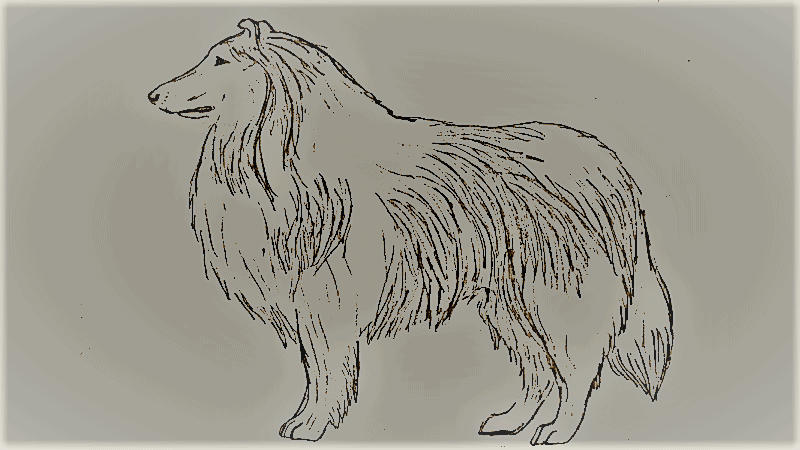The neighbor was painting his trash cans again. Davis watched him print “Mr. Hirschbaum” and his house number in large white brushstrokes, stark against the black plastic. Not that Davis was obviously watching, but he surreptitiously monitored the baffling situation as he trimmed the hedge between their adjoining yards.
Davis was fairly new to the neighborhood, but his gossipy neighbor Sharon, president of the Home Owner’s Association, said it had become tradition for the local teens to swap out Mr. Hirschbaum’s waste bins with others. Apparently, old Hirschbaum proved so adept at locating his misplaced property that they had upped the ante by spray painting black over his white lettering.
He still managed to identify his personal cans from a myriad of others in the subdivision. So the kids moved them farther and farther away. They had relocated his bins all over Jacksonville, Florida – a city with one of the largest land areas in the USA – and still Hirschbaum returned triumphant.
Or perhaps more livid than triumphant. Davis had heard vibrant cursing the day prior and peered out his window to see Hirschbaum hauling his filthy trash cans from truck to garden hose, accompanied by his equally dirty dog. Man, dog, and cans looked like they had been submerged in a swamp – probably the one directly behind the neighborhood. It seemed the local kids were getting creative with their hiding places.
How Hirschbaum regularly, impossibly managed to find his bins was a mystery that engaged the bored minds and wagging tongues of many a nosy neighbor. When Sharon had pressed for the secret of his location skills, he told her, “I can see and Lord Byron can smell.” (Lord Byron actually did carry himself like canine nobility, even when he had resembled a large, bedraggled swamp rat yesterday.)
Sharon had a vested interest in knowing how Hirschbaum did it. She had repeatedly lost money betting against him. Allegedly anyway, according to yet another overly involved neighbor. Davis reflected that he really should start walking to the community mailboxes under cover of darkness to avoid unwanted socialization… Yet he had become interested in the saga despite himself.
Clearing his throat, Davis called out, “Mr. Hirschbaum?” The old man looked up from sealing his paint can. “Would you like me to trim your side of the hedge while I’m at it?”
An unnerving several seconds of silence followed, wherein Davis wondered if Hirschbaum had forgotten his hearing aids. “Why?” he finally asked.
“Ah… So the hedge will match on both sides?” Hirschbaum fixed him with a stare about as welcoming as a cliff face to a storm-driven boat. It had not occurred to Davis that his intended friendly overture might be met with resistance, though Sharon had described him as “a difficult man” whose taciturn nature had launched the War of the Bins. The man had committed horrors such as refusing to weed or water his lawn and forbidding people to park on the curb before his house. “It’s also a good arm workout for me,” Davis added lamely.
The harsh planes of Hirschbaum’s face slightly shifted, as if moved by the idea of smiling. “By all means then,” he said. “A young buck like you must maintain a fine physique to attract suitors.” Yes, that was definitely amusement in the old man’s voice, and Davis laughed too loudly in relief.
Before crossing the property line, he asked, “Is your dog friendly?”
“If I’m fine with you, Lord Byron is fine with you. I’ve seen you before.” This seemed an odd thing to say. They were next-door neighbors: of course Hirschbaum had seen him.
Davis was surprised to hear, “I know,” when he introduced himself, but it was a chatty neighborhood. Even now, he could see Sharon spying on their interaction from her lookout window across the street. He resolved not to get his mail until after 10:00 P.M. at least. A Sharon conversation was never fun exactly, especially when she was fishing for information.
He was further surprised when old Hirschbaum commanded, “Call me Allen.” But being on a first-name basis with him would be less of a mouthful.
As Davis started trimming Hirschbaum’s half of the hedge, he awkwardly tried it out. “So… Allen. What kind of dog is Lord Byron?”
“Rough Collie,” Allen said tersely, already heading inside with his ever-present dog at his heels. Davis was impressed by the pair’s synchrony, particularly since he had never once seen the dog on a leash.
“I haven’t heard of that breed,” Davis commented.

Allen actually stopped in his tracks to cast an offended look over his shoulder. “What about a Lassie dog?” he queried.
Sensing he’d gone wrong, Davis said pleasantly, “Nope, haven’t heard of that one either.”
“They’re the same kind of dog!” Allen nearly shouted. “Lassie, the canine icon? The TV show, the movies, the books? Not ringing any bells?”
Perhaps one far-off bell was vaguely ringing, for there was something familiar about Lord Byron… But Davis shook his head. “I’m an ignoramus when it comes to dogs, sir. My father has terrible allergies, so I couldn’t have a dog growing up. Now that I’m renting my own place and working from home, I’m thinking about getting one. I’d be happy to walk Lord Byron or even dogsit if you ever need me to,” he said in a rush.
Allen scowled at him. “I’m supposed to hand off Byron to you?” he said with a tinge of disgust. Then, “Very well. You can start tomorrow. Will you be giving him his morning or evening walk?”
Davis blinked, feeling like a startled toad caught in a flashlight beam. “Uh, evening I guess? That’s when I walk to the mailboxes.”
Allen nodded. “No walks before sunset; it would be too hot for him. Come to the front door when you’re ready. We’ll also begin grooming lessons this week.”
This was too much. If Davis got a dog, it would probably be smaller and non-shedding. And he certainly would not be grooming it himself!
But before Davis could object, Sharon’s distinctive voice rang out. “MISTER Hirschbaum!” Hirschbaum turned to meet the invading force head-on as she marched across the street. “As you know, the HOA rules clearly state that dogs must be leashed at all times! The next time I see this animal off-leash, I will be taking a picture and reporting you to the city!”
Mr. Hirschbaum smiled at her, which was somehow more terrifying than his stony stares. “Wait a moment, won’t you Sharon? I’ll be right back.” He turned and went inside, Byron dutifully following as always.
Mystified, Sharon remained standing on the sidewalk while Davis wished to become one with the shrubbery he kept studiously trimming. “I hope he’s paying you to do that! But knowing that old cheapskate, I’m sure he isn’t,” Sharon griped.
“Well, he’s giving me lessons in dog care in exchange. I’m thinking about getting one myself,” Davis added.
“Just what this neighborhood needs – another dog,” scoffed Sharon.
Then Allen and Byron emerged. Clipped to his collar, Byron sported a leash that looked little-used, and Allen held the looped end in his hand. Sharon’s smile of victory turned to a look of pure outrage as Allen deliberately dropped the leash across Byron’s back and strolled away down the sidewalk, whistling, hands shoved in pockets, while Lord Byron stepped with great dignity at his side.
“Well, he is technically on-leash,” Davis pointed out weakly.
“Davis, are you coming?” Allen yelled. Faced with staying to watch Sharon’s face turn the red of a crawfish being slowly boiled alive, Davis opted to drop the hedge trimmers and run after them. When he caught up, Allen explained to Davis that it had been necessary to make his point to Sharon. He seemed to think his reaction perfectly reasonable.
Still, this was the man who thought waging the war of the waste bins perfectly reasonable, when a lesser man would have given up ages ago and just accepted whatever swapped bins the local teens left him with. Allen could out-stubborn a mule, no doubt.
Davis alienated Sharon that day but gained great friends in Allen and Byron. His evenings settled into a comfortable routine with them, and he was happy to have a share in Byron. (His landlord had nixed the idea of a dog.)
He even looked forward to the grooming sessions. They were bonding opportunities, plus there was something calming about running a brush through that double-coated dog’s fur. In the early summer when Byron “blew his undercoat,” as Allen called it, the fur came out in clumps like a horse shedding its winter coat. Allen’s method of cleanup was to turn on his ceiling fan and let the fur tumbleweeds blow into the corners where they could be easily collected.
Davis found it a little disturbing and a lot amusing when Allen said his wife had collected the undercoat of their previous Collies to card into “wool.” He stopped being disturbed when Allen showed him the various sweaters, hats, and scarves she had made for him. Davis marveled at the softness of the fibers and the softness on Allen’s face when he spoke of her. Clearly, he must have been a different man when his wife was still around.
After several months of happy association, Allen finally took Davis up on his offer to dogsit. He was a bit cagey on how long he would be going away, which Davis took to mean – at least a week? Nor would Allen disclose details about where he was going, other than to say, “It’s high time I get out of here,” and, “It’s been too long since I saw my family.”
The night before he was scheduled to leave, Allen had Davis visit again, ostensibly to walk him through Byron’s feeding routine. Davis humored him, knowing the old man was anxious about leaving his beloved dog behind. He also got his first tour of the entire house and learned that Allen had designed it.
He seemed particularly proud of the fireplace. “I built it myself,” Allen said, patting it nearly as fondly as he did Lord Byron. “Laid it by hand – brick by brick.” He transferred his intense gaze to Davis.
“It’s a very nice fireplace, sir,” Davis said dutifully.
“I’ve left detailed instructions for Byron’s care,” Allen said, walking to the kitchen counter and picking up a small notebook. “If you have any questions, you’ll find the answers in here – plus something extra if you have the eyes to see.”
The old man’s being extra spooky today, thought Davis. Aloud he said, “Sounds like you’re expecting to be pretty far out of cell service.”
Allen smiled, “Yes, I plan to really get away from it all.”
Early the next morning, Davis was awakened by the sound of heartbreak. The wrenching howling had to be Byron, and it froze something in Davis’s soul. Stumbling next door in his bathrobe, he knocked, then pounded on the door. No answer. With shaking hands, he used the spare key he had been given to let himself in.
Finding Allen unresponsive in his bed and Byron wailing his heartache to the heavens beside him, Davis sank to the floor and called 911. When the paramedics arrived, he had to forcibly drag a snarling, inconsolable Byron away from the body of his master.
After they left, not knowing what else to do, Davis picked up Allen’s little black notebook. In what appeared to be Wite-Out™, the hand-painted lettering read “Lord Byron.” Davis smiled through his tears to think of the trash cans that had first inclined him to befriend the cranky old codger.

Page one was feeding instructions, but he needed to know what to do for emotional distress. The next few pages, in excruciating detail, were devoted to Byron’s walking and grooming routines.
But the last page was… odd. “Please keep Byron in this house, in familiar surroundings. See my handcrafted creation with his symbol for further instruction. I leave you love letters I wrote but never mailed. They have value to me and will to you also if you have eyes to see.” Well, the whole house was Allen’s “handcrafted creation.” But the fireplace… Had Allen acted stranger than usual about the fireplace?
Davis inspected it, peering closely at the side section Allen had patted. Then he saw it: the outline of a Collie head faintly scratched into a brick. That brick and a few surrounding ones were loose, so he pulled them out like he was playing to win a Jenga™ game. The concealed compartment within revealed a box containing a packet of letters. The top one was addressed to him.
Dear Davis,
You have been like a son to me these last months of my life. Thank you for reminding me what it felt like to have family again. My wife and son died in a car crash years ago, and I wrote to them on the anniversaries of their deaths. Perhaps you would do me the honor of reading these letters, to keep their memories alive a while longer. Use your eyes to see the unsent.
I leave my original will with you, as I fear the copy I left with my lawyer may have been tampered with through the bribery of distant relatives who covet my assets. Byron is yours, my house is yours, and the letters with their riches are yours. Forgive me for the secrecy and paranoia; I wanted to ensure my possessions would go to you, or at least not fall into the hands of my unloving relatives. I knew they could not be bothered to care for a dog.
My apologies in advance for the “horrible Hirschbaums,” as my wife called them. I’m afraid I became a horrible Hirschbaum again until I met you.
With love,
Allen Hirschbaum
The will was there beneath the letters – clairvoyantly dated a year before Davis had moved into the neighborhood. Spooky old man, Davis thought fondly. Then he cried into Byron’s fur, too wrecked to process everything.
Days later, the horrible Hirschbaums showed up. They demanded to know who Davis was, why he was squatting in their house, and why Allen’s bank accounts were empty. He showed them the will. They attempted to snatch it from his hands and loudly promised legal action. Byron lunged at them with deep, warning barks, and they vacated the premises while vehemently threatening to have “that dangerous dog put down.”
Davis did not have the money for legal fees. Seeking comfort, he finally brought himself to read Allen’s other letters. Then a realization dawned. The envelopes had postage stamps! Why?
He was no judge of such things, but the stamps looked far older than the years in which Allen had written the letters. Davis was unsure when stamps had last been so cheap, but he knew it was not anytime recent.
An Internet search revealed that he was holding a small fortune in his hands. The horrible Hirschbaums could try to take the house away, but they were unaware of the letters and their valuable stamps. And now he had more than enough means to fight back.
He ruffled his dog’s ears. “Lord Byron,” he told him, “we’re going to be alright.”
If you liked this story and want to support Collie Chatter, you can leave me a tip on vocal.media or purchase one of our recommended dog products from Amazon so we can buy more dog supplies ourselves!




